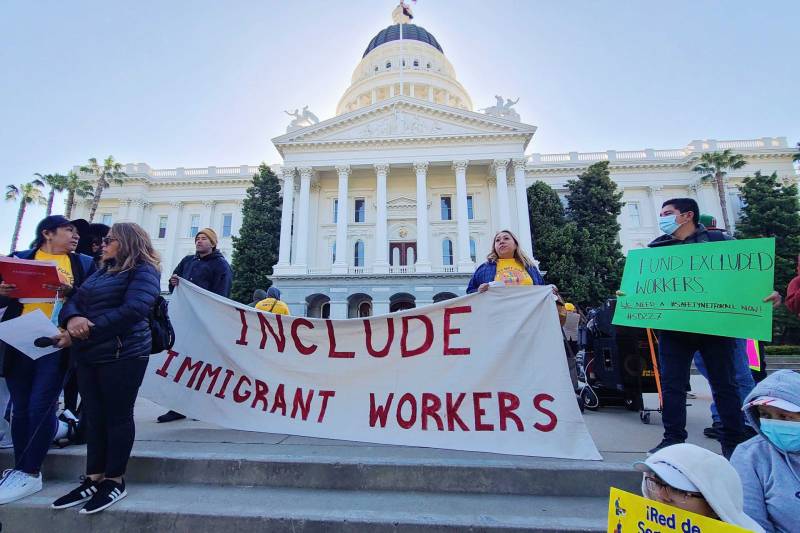Several hundred demonstrators from around California converged Thursday at the state’s Capitol in support of a bill that would offer income assistance to workers who are excluded from unemployment insurance benefits because of their immigration status.
The “Safety Net for All Day of Action,” as dubbed by organizers, comes a month after a disastrous flood submerged vast expanses of berry and lettuce farmlands on the Central Coast and left thousands of local agricultural workers — many of them undocumented — facing the prospect of no income for months.
As more natural disasters like this winter’s atmospheric-river fueled storms are expected to disrupt jobs, supporters of SB 227 say it’s urgent for the state of California to fund an economic safety net for laid-off undocumented residents — instead of leaving nonprofits scrambling after every emergency to offer cash aid.
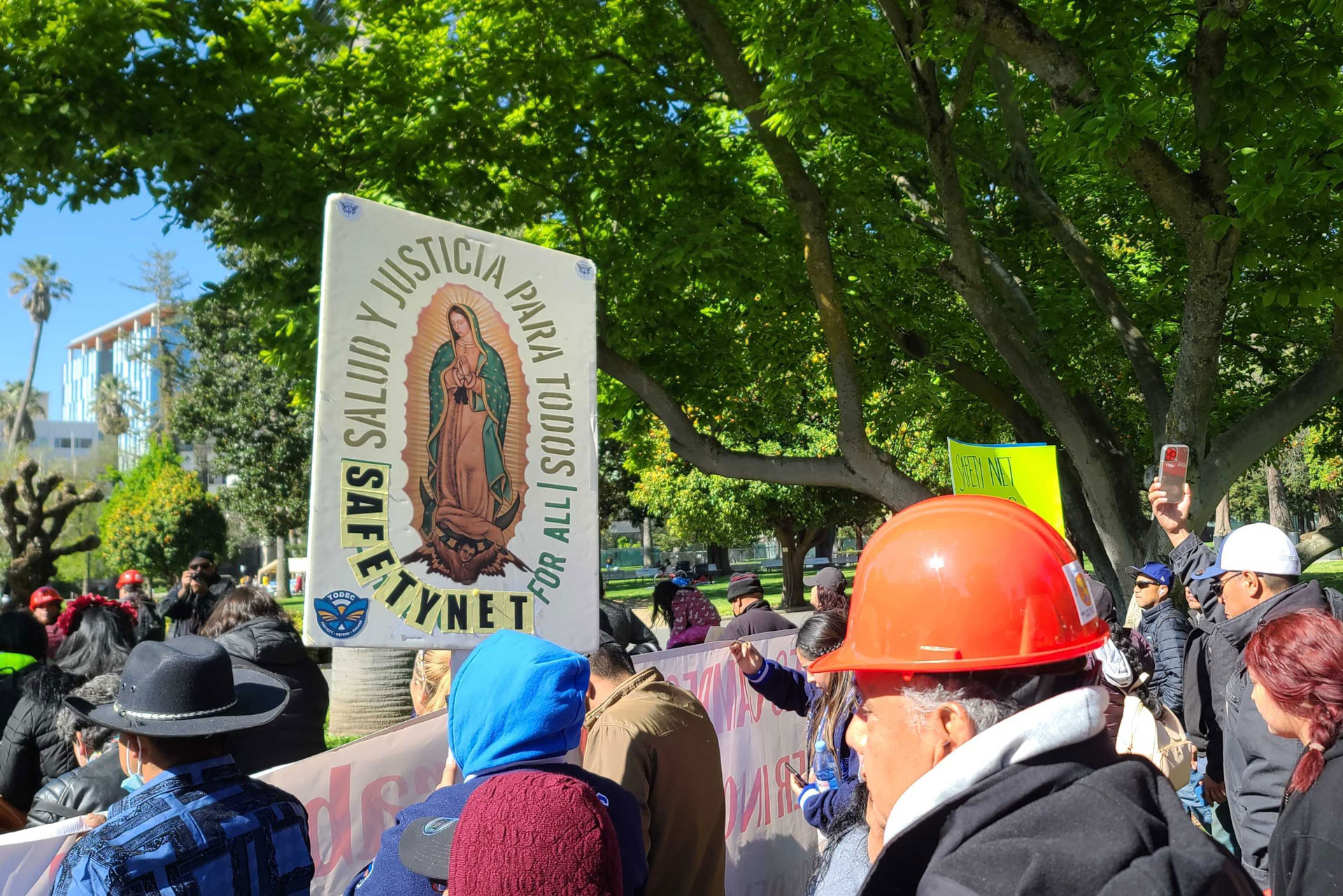
“That’s just not a feasible solution, where we have over a million undocumented workers in the state,” said Kim Ouillette, attorney with Legal Aid at Work, an organization that is part of the Safety Net for All Coalition.
“Realizing that reality, it can’t just be left to piecework charity,” she said. “The state has an obligation to ensure that there’s a system in place that protects California workers that are major parts of significant industries.”
An estimated 1.1 million unauthorized immigrants labor in California, particularly in low-wage jobs in agriculture, construction, retail trade and food services. In agriculture, half of the state’s crop workforce lacks employment authorization, as estimated by the U.S. Department of Labor.
California’s unemployment insurance system is funded in part with dollars from the federal government (PDF), which renders unauthorized immigrants ineligible for those benefits. However, the employers of those immigrants pay tax contributions to that same system — hundreds of millions of dollars each year — on their behalf (PDF), according to estimates by the UC Merced Community and Labor Center.
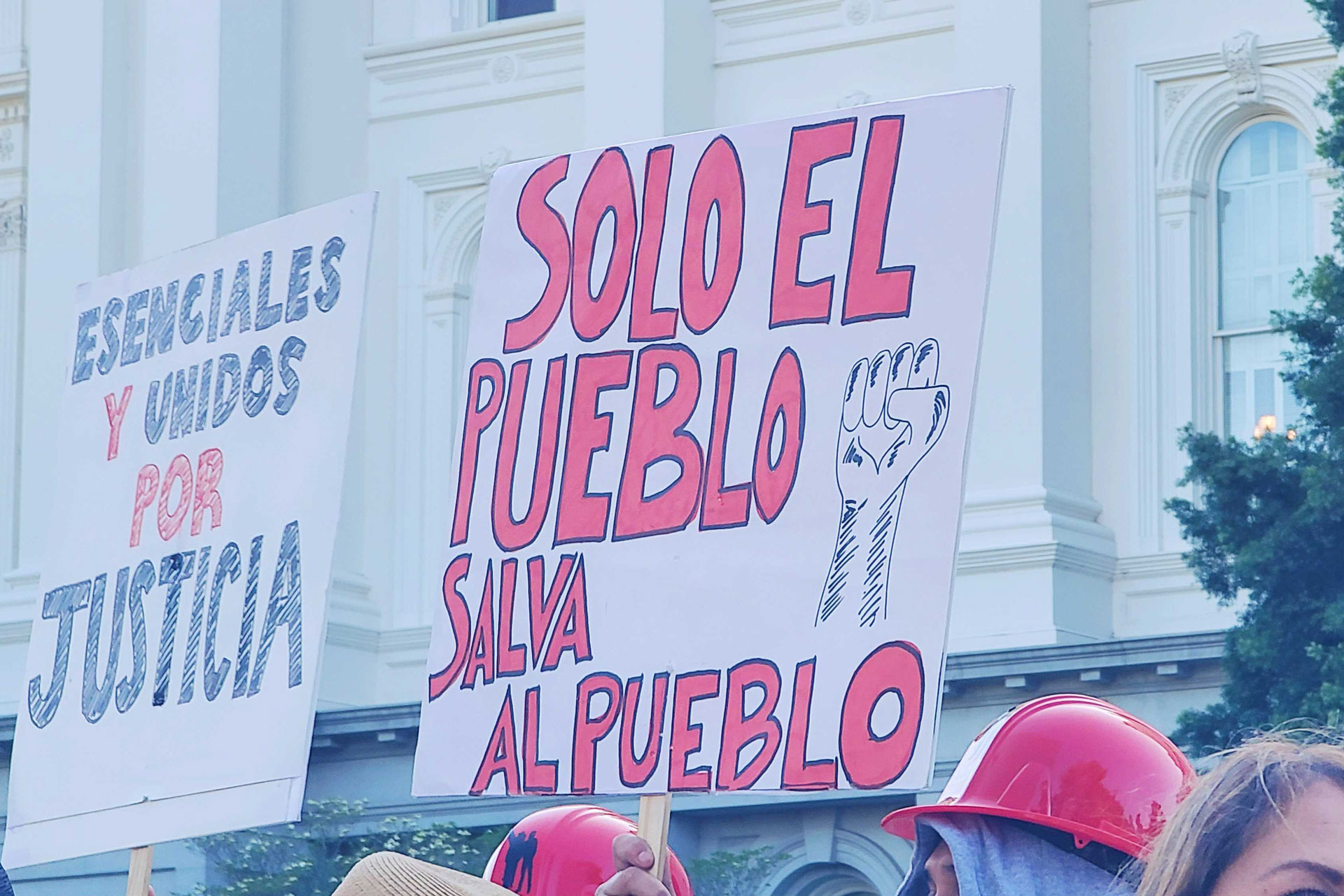
SB 227 would direct the Employment Development Department, or EDD, to create an “Excluded Workers Program” offering eligible individuals $300 dollars weekly for up to 20 weeks, with funds that would come from state coffers only.
Under the bill, California residents would be eligible for the benefits if they performed at least 93 hours of work or earned $1,300 or more in gross wages over the course of three months during the year before their application. That cash assistance would become available at the earliest by Jan. 1, 2025, and end by the start of 2027, according to the measure by Los Angeles state Sen. Maria Elena Durazo.
Advocates and workers pushing for the bill said they started organizing at the start of the pandemic, when the safety net gap became increasingly evident as undocumented residents in hard-hit industries lost income but were unable to access the unemployment benefits other workers had.
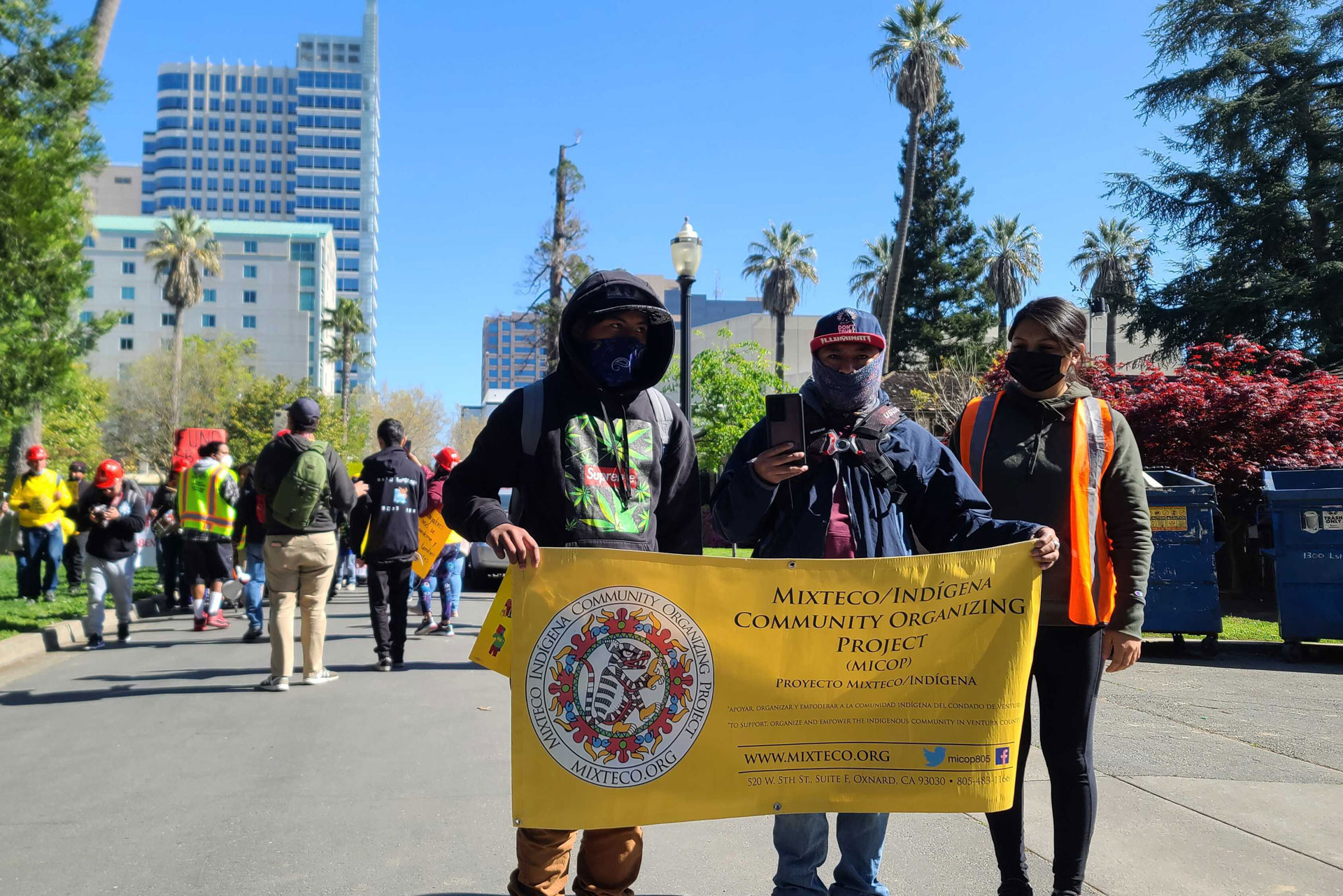
“It’s not fair. I’ve been contributing to the state,” said Luis Mejia, who has worked in California for 13 years. “We need the governor to sign this law proposal.”
The 54-year-old car wash worker said losing his income for months during the pandemic — with no jobless benefits to rely on — was incredibly stressful. He fell hopelessly behind on rent and couldn’t send money to his two daughters in El Salvador.
“Those were moments that I would not wish on anyone else,” said Mejia, one of numerous Bay Area residents who woke up before dawn to ride a bus from San Francisco’s Civic Center to Sacramento with the organization Trabajadores Unidos Workers United. “That’s why I’m taking measures so that on this trip to Sacramento, we tell Mr. Gavin Newsom that we are here. We are still in this fight.”
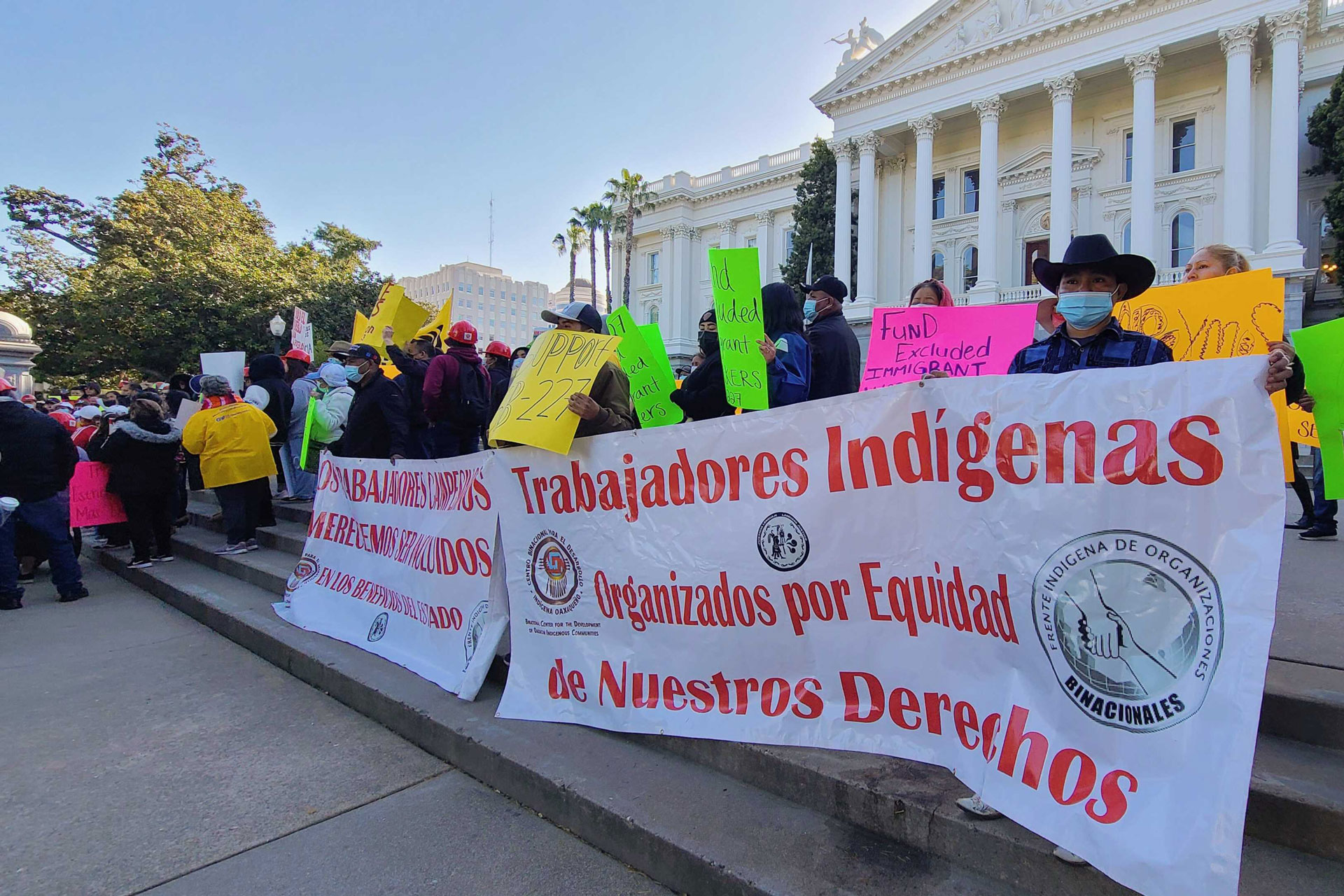
The Legislature passed a similar bill last year, but Gov. Newsom vetoed it (PDF), citing fiscal concerns. Those objections could be magnified this year, as the state faces a huge budget shortfall. While the administration projected the deficit at $22.5 billion, it could be about $7 billion larger, according to a report last month by the Legislative Analyst’s Office.
Still, supporters of SB 227, which has become a top issue for the California Latino Legislative Caucus, argue that it’s a question of basic equity and justice. Unauthorized immigrants pay significant state and local taxes annually, to the tune of $3.72 billion in 2019, researchers at the University of Southern California’s Equity Research Institute found.
